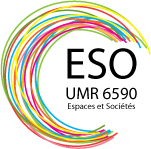Urban infrastructures, metabolic resource flows and the contradictions of circular economy ‘solutions’ in Nantes and Gothenburg
Résumé
Urban infrastructures, as socio-technical systems that transform metabolic flows, are a key focus for efforts at initiating a more circular economy of resource use and waste recovery. Beyond exemplar discourses and claims, an infrastructure-mediated understanding of and focus on actually existing circularity projects attends to the diverse array of components, sites and exchanges through which transformative socio-technical change is envisaged, enacted and challenged. This article uses in-depth studies of circularity infrastructure initiatives in Nantes (France) and Gothenburg (Sweden) that involve a range of public and private stakeholders. We focus on the contradictions and tensions in these initiatives to draw attention to circularity as a material and political process of relocalising resource use while spatially expanding resource networks. We show how this process involves reworking large-scale infrastructure while nurturing community-level initiatives of the foundational economy, and thereby shaping urban futures through reuse and recycled flows but with a view to sustaining economic growth strategies. We argue that the materialist and productivist logic underpinning the urban infrastructures of the circular economy largely serves to aggravate the underlying fundamental systemic concerns that circularity was supposed to address in the first place.
| Origine | Fichiers produits par l'(les) auteur(s) |
|---|


